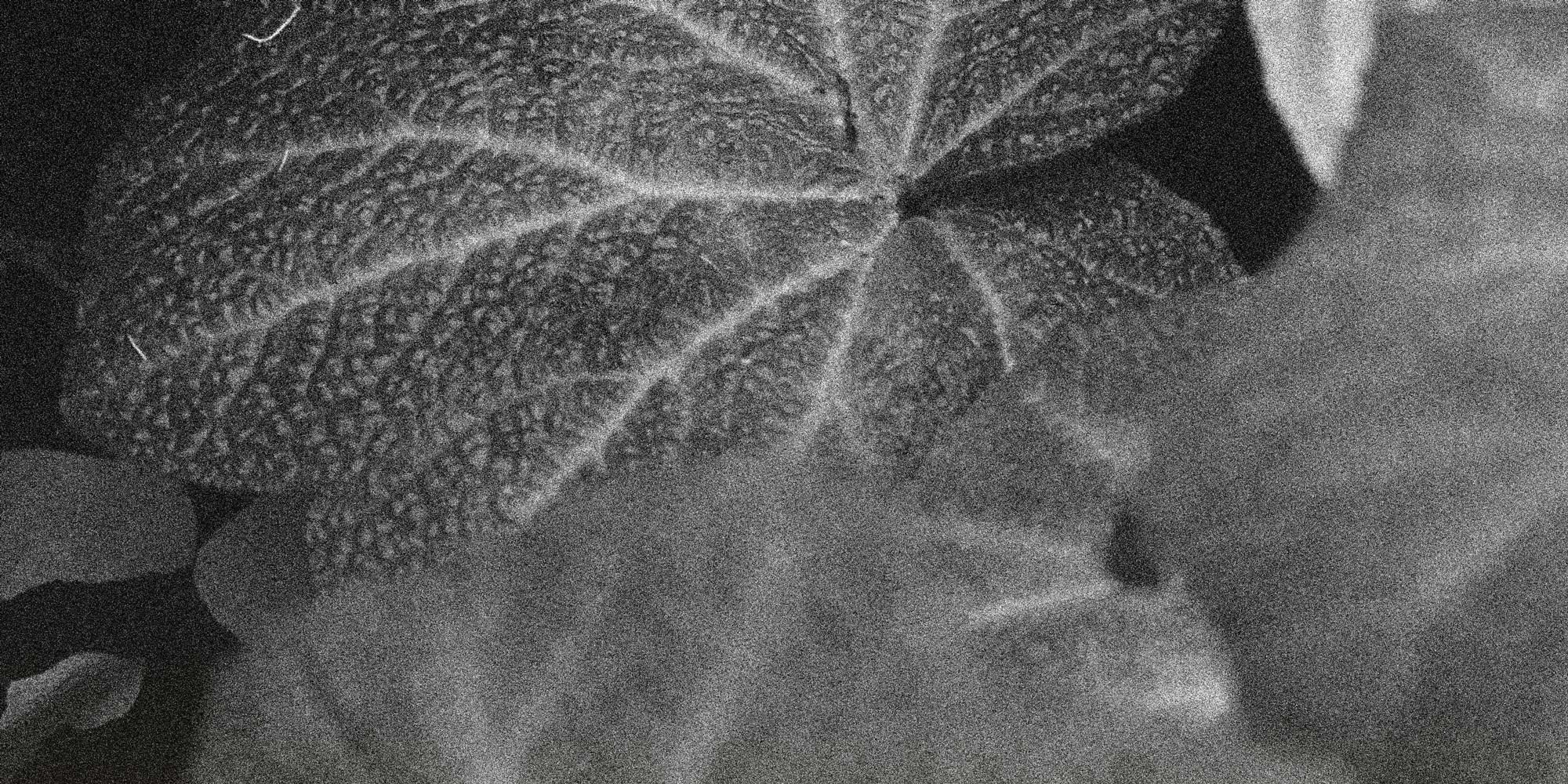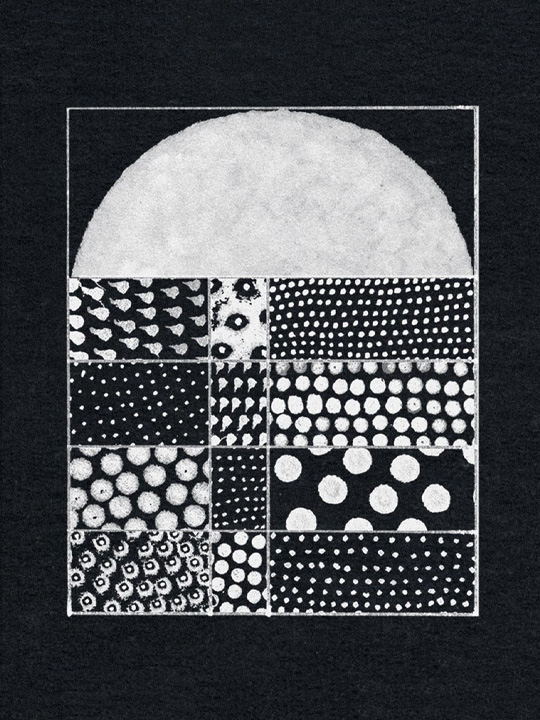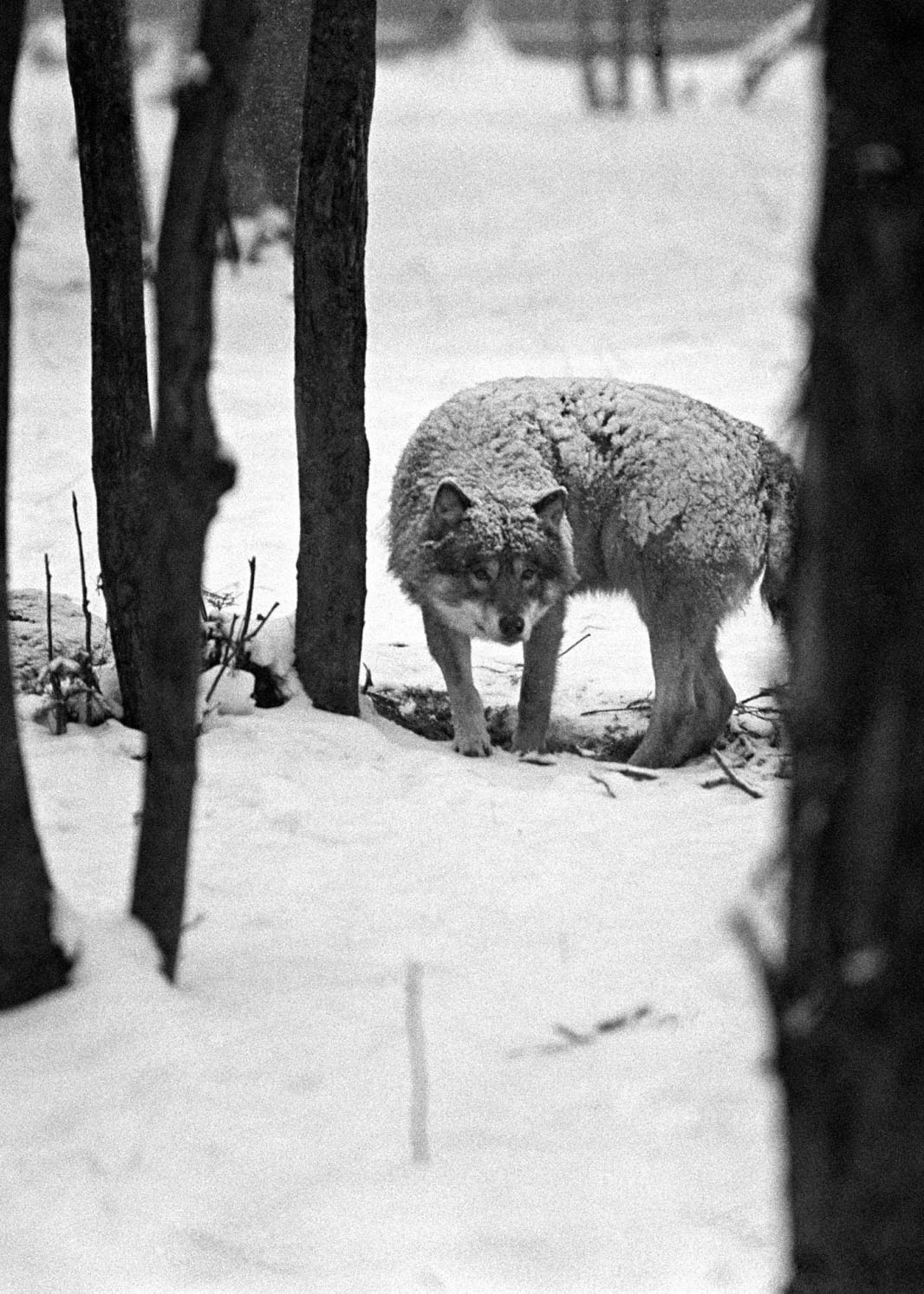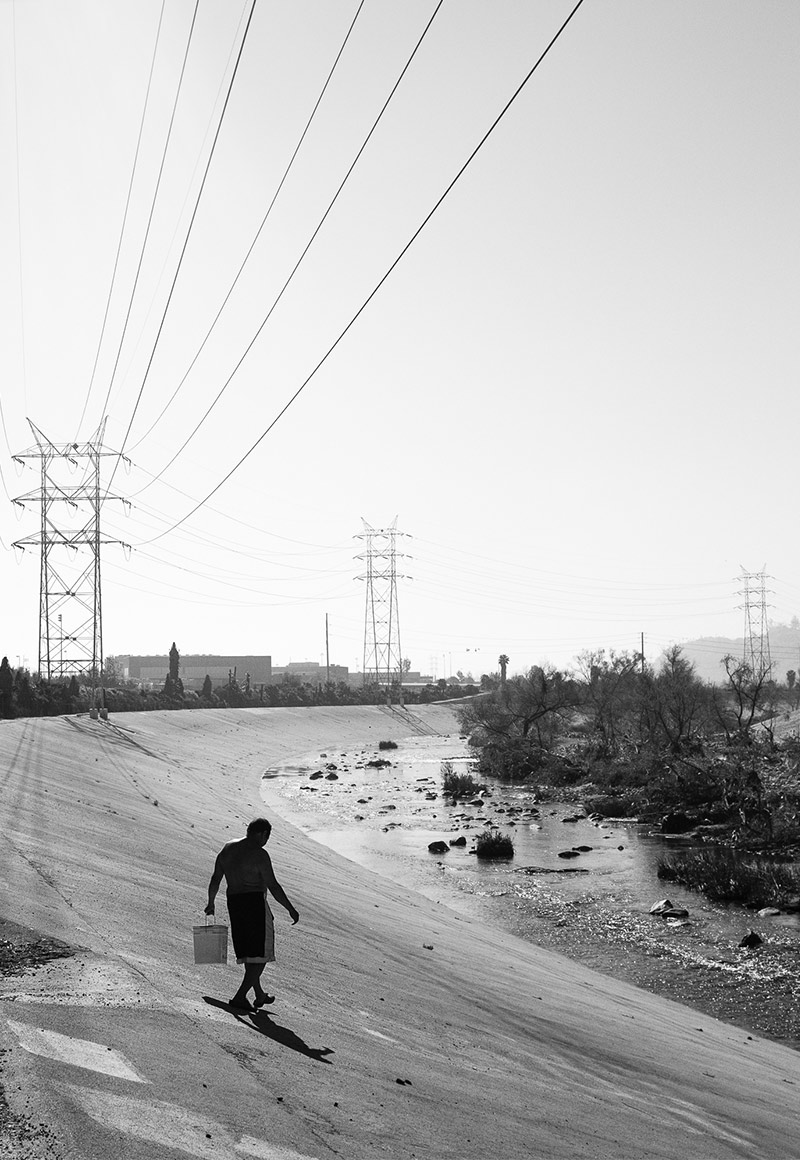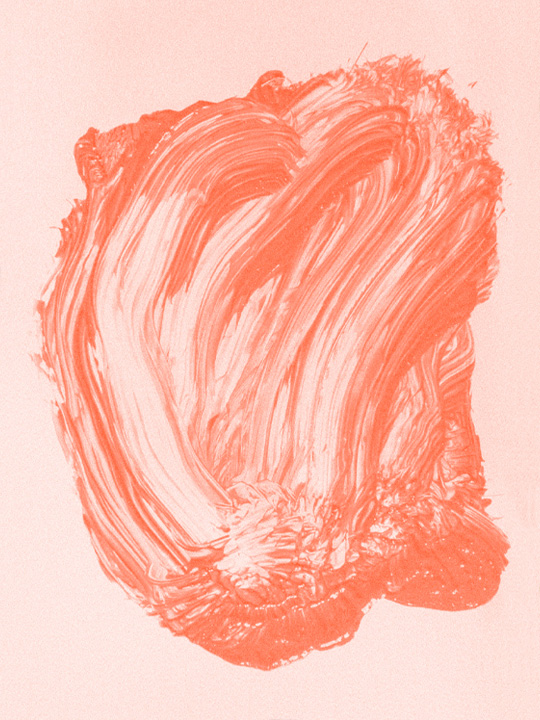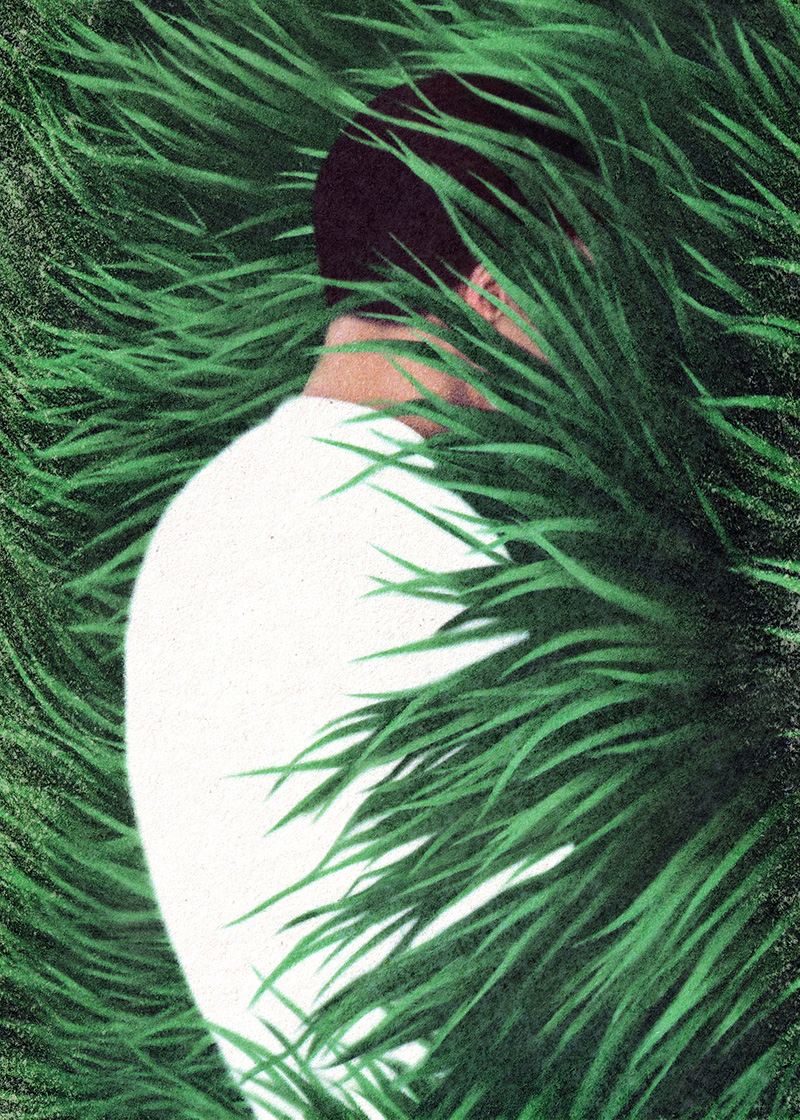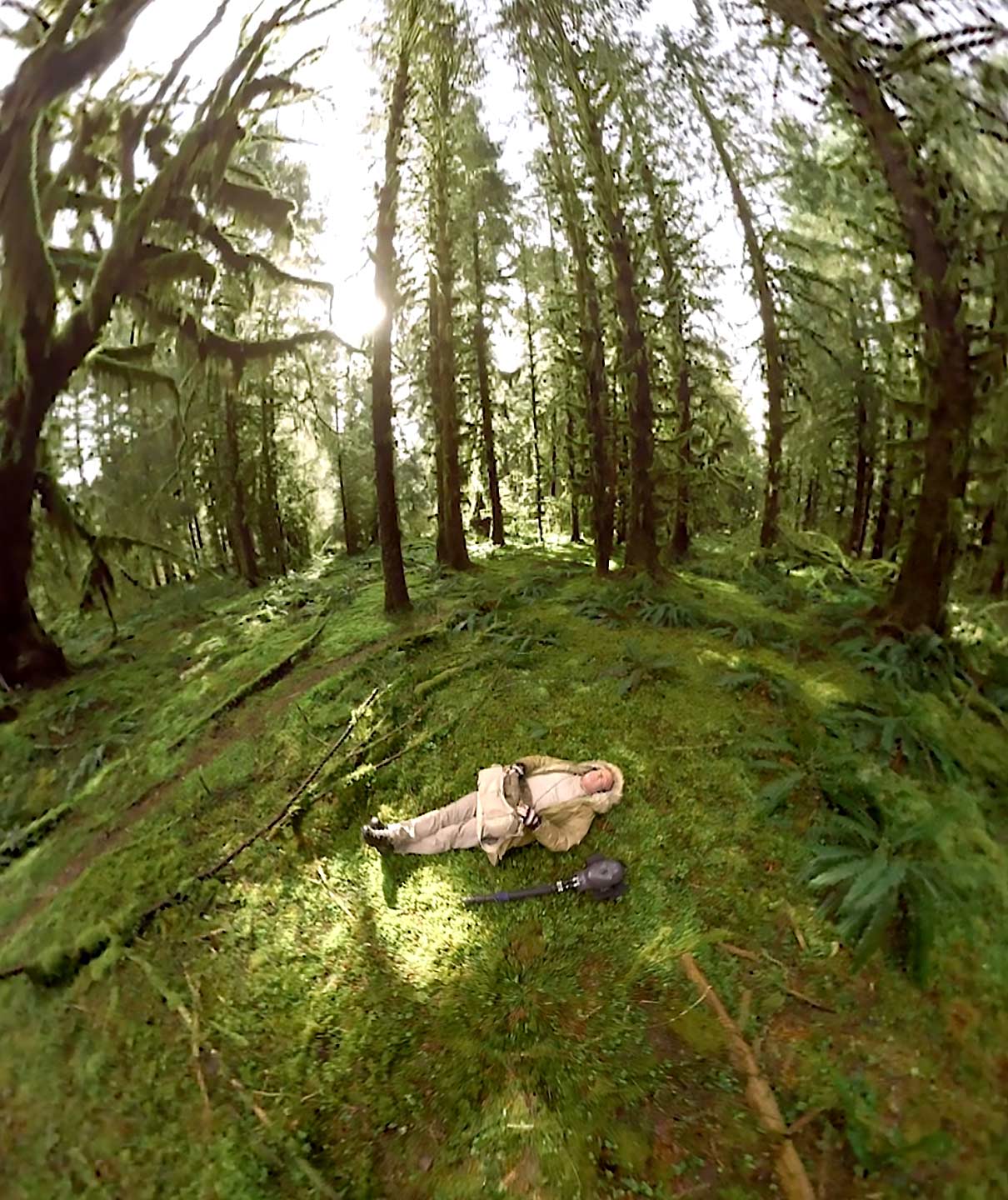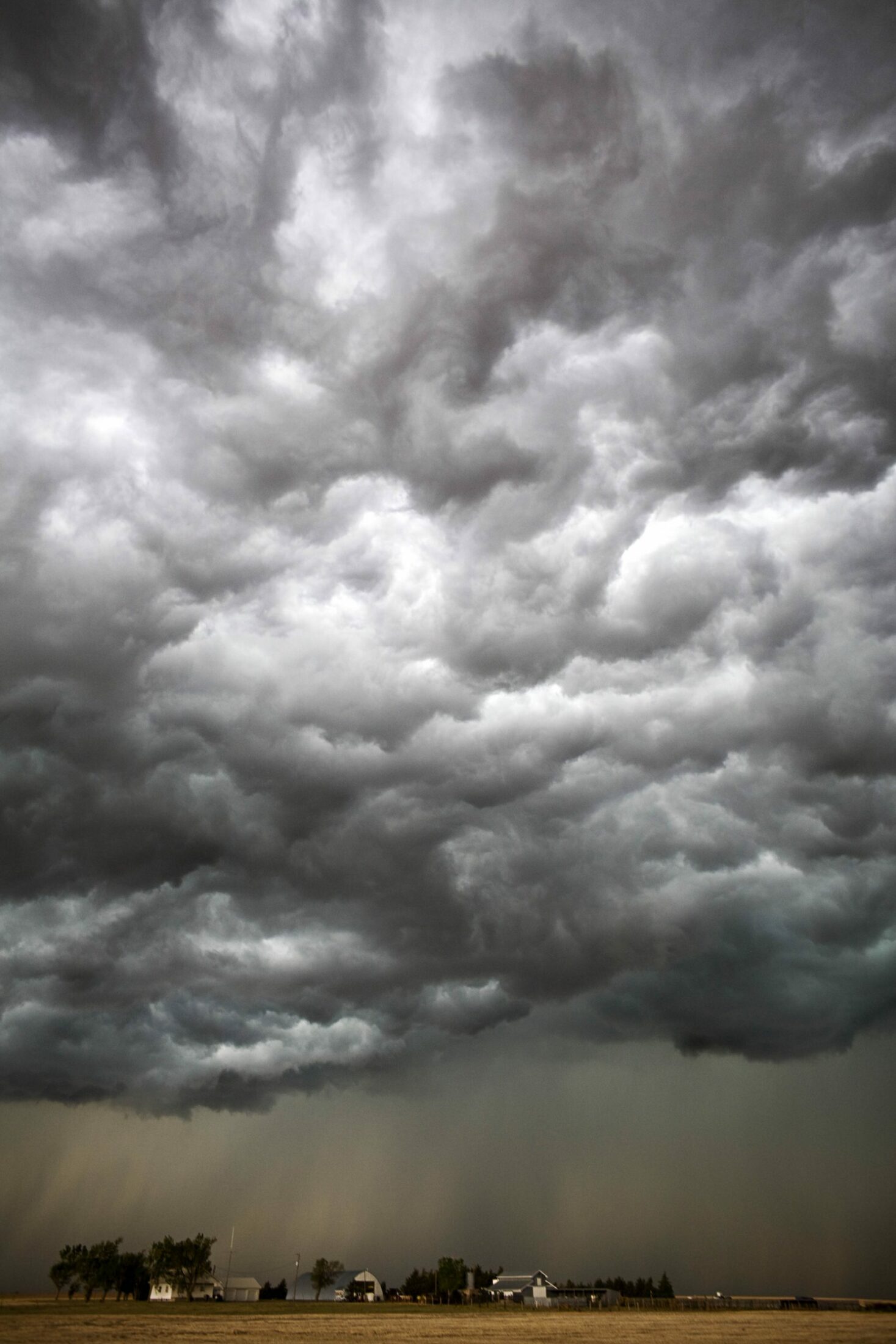
Mistinguette Smith writes across the boundaries between race and culture, urban and rural, academic and vernacular. Her poetry has been published in Pluck! A Journal of Affrilachian Arts and Culture and the anthologies Does Your Mama Know and Other Countries: Voices Rising. Her creative nonfiction works have been published in The Common, Belt, and Yes!, as well as in several anthologies. As the founder and director of the Black/Land Project, she has traveled the country gathering black people’s stories about relationship to the land.
Studio Airport, founded by Bram Broerse and Maurits Wouters, is an interdisciplinary design studio that ventures out into the cultural ether to forage for anomalies, creating work that spans art, culture, science, and ecology. In addition to Emergence Magazine, their creative partners include the Design Museum, See All This Art Magazine, Slowness, Normal Phenomena of Life, and Sapiens Magazine. They serve as master tutors at the Design Academy Eindhoven and were recognized as European Agency of the Year 2024 by the EDA.
On a visit to her grandfather’s hometown of Roba, Alabama, Mistinguette Smith encounters a legacy of violence, survival, and connection to a land that, like blood, cannot be unbound.
Red Jack
All my life I was afraid of my grandfather, and all my life I was afraid of the South. They were the same for me: his sun-weathered body and the land he came from. Even when he lived in a fourth-floor walk-up of a Northern city tenement, he carried with him a bullwhip, a pistol, and a wide-bladed knife. I remember the heavy thunk of each weapon as he sat it on the counter of his bar, out of my reach. He always traveled well-armed, equally prepared to meet the violence of a card game gone bad or wild boar unfortunate enough to find itself lumbering toward him in the dark. He told me people called him Red Jack because he didn’t like to lose; the smell of whiskey on his breath told the rest of the story. Jack was mean as the sack of rattlesnake he once brought home for my grandmother to debone, soak in buttermilk, and fry up for dinner. Nobody asked where—in Cleveland, Ohio—he had found such a thing; he claimed that he was missing Alabama and so went out and killed it himself. If you asked him how he could be homesick for a place so full of hunger and danger, he’d skin you with his tongue—quick and clean as he could skin rabbit. Red Jack was proud of being from hard country people. He had no use for sentiment. He didn’t leave anything to waste.
Roba, Alabama. That’s where he said he was from. Every year he drove his dust-colored station wagon there, the sun-faded pages of the Green Book wedged between the dashboard and the window even though he knew his route by heart. It took two whole days of traveling backroads through Ohio, Kentucky, and Tennessee. I could never go to a place like Alabama, he said. He never took me, because it wasn’t a nice place with things that I was used to, like toilets that flush and hamburgers and comfortable places to sleep. He never took me there, because things might happen because I was a girl. “Baby, Roba, Alabama ain’t no place you go for visiting,” he once declared with his thick warm laugh. “It’s a place that you got to go to ‘cause your people are there. It’s a place that’s either in you, or it ain’t.”
“That,” he declared, slamming a shot glass on the bar top, “is the goddamned truth.”
Which is how I found myself forty years later in a white rental car, squinting at the place where Alabama’s County Road 2 crosses the rufous dirt of Roba Road.
Land and Kin
My journey into black people’s narratives about land has often yielded kinship stories. People seek to return to ancestral lands, to locate the one place on which they know their people set foot. This seeking is more than just compensation for the conditions of constant displacement that create the condition of blackness. Black Americans—whether they are the descendants of slaves or first-generation Nigerian-Americans—define their connection to land as caring not only for the land but also for the stories of the people who have shared it. Shared tenure begets kinship; the land itself becomes kindred. A place becomes your home because your people are on the land.
Land, like blood, makes ties that cannot be unbound.
This link between tenure and kinship is especially true among the descendants of West Africans who still practice heirs’ property: passing titles to land or homesteads to all of one’s descendants collectively. This relationship is as complicated today as it has ever been—imagine getting all of your first cousins in a room together to decide who will live in Great-Aunt Mable’s house and who will pay the property taxes—but its intention is clear: to cultivate the complex ties and compromises of kinship through a shared relationship to land. Heirs’ property is not recognized under United States law; the nearest legal conceptualization to heirs’ property is the concept of tenancy-in-common, divisible into allotments held by individuals. A hard-working, under-resourced sector works diligently to protect black families from losing land in partition sales and tax foreclosures by encouraging black people to treat land as property, which can be protected with wills.
But there is something in blackness that knows property is a temporary agreement with the government, one easily revoked by the stroke of a pen or a calculating mob of white men with guns. Land, however, is something else. Land is something you know, and it knows you. Centuries of caring for land can bind people together with something stronger than shackles and deeper than freedom. Land, like blood, makes ties that cannot be unbound.
The Crossroads
I am a Northern book-learned teacher who gathers stories about relationships to land that defy the colonizing categories of wilderness, allotment, plantation, and ownership. During a drive from the airport in Montgomery to Warrior Stand, I realize I’m near the place my grandfather called home. I want to see if I can find that old-timey cabin without a screen door and the pump in the front yard that he held so dear. In the language of the Muscogee Creek, “Roba” means “The Crossroads.” Roba was an intertribal gathering ground, offering hospitality and exchange. It is part of a geological ridge of soil too poor to support cotton plantations.
In the age of GPS, it seems that Roba, Alabama, can’t be hard to find, but I almost miss it. A passerby directs me back toward the “new, paved county road” and tells me to look for the sign. At the edge of a mowed field stands a whitewashed stake about three feet high with hand-painted red block letters that spell R-O-B-A. On Route 2 there is a tidy cinder-block church, a few newer trailer homes, and sun-dappled woods all the way to the road to Tuskegee. I turn to drive up a narrow, graveled side road.
Tall brush gives way to longleaf pines, which turn suddenly thick here, obscuring my GPS signal and the sun. I drive slowly with my air conditioning on full blast. In fifty feet I see something through the dark gray trunks: the skeleton of a shack. Once the barest of habitations, the shack’s remains indicate that it has stood like this for a hundred years or more. A swaybacked roof slopes down toward a porch, absent all of its uprights. Missing knotted clapboard slats let what little light there is filter in. A doorless casing hangs like a slack-jawed, toothless mouth. It gives onto what must once have been a swept dirt yard and is now a forest of knobby-kneed scrub trees. People who worked land but did not own it once lived here. They’ve been gone, but not for very long. Sweat pricks the back of my thighs as I peel them off the car upholstery.
You might think this trepidation is my response to confronting the mean architecture of slavery and its cousin, sharecropping. But I am well-reconciled to that material history. I feel almost relieved to find confirmation of it here. My shiver on this humid afternoon arises from awe and a new understanding of what it means to have deep roots in this place.
I stand face-to-face with a new understanding of the black wild. It has never been some place out there : pristine and untouched, awaiting our recreational exploration. This crude, enduring dwelling testifies to how black bodies served as the boundary between cultivated order and brutal yet pristine wild. With its back to deep woods, this thin shelter demonstrates its inhabitants’ intimate knowledge of the place where, as the writer and English professor Aaron Abeyta describes, “you become aware of the way things die and, reciprocally, how things survive.”1
Sweat bees bounce off the legs of my trousers as I enter the copse where the ruined house stands. I think of the thick bonds of family and the thin sheen of joy that covered folks here from the constant encroachment of illness, predation, and pain. A pile of dead brown leaves shifts and animates, or perhaps I imagine that it does. The black wild is a place where death is ordinary, and work for survival stretches as far as one can see into the future, as far as one can remember into the past. There is no striving here, nothing to do but let go.
Young folks in the urban South talk about “wil’ing” as the state of surrendering control, letting the violence and suffering absorbed over a lifetime flow out of the body in a single, striking act of rage. “Go in the wilderness,” their rural grandparents shout in cinder-block churches; and I wonder why they call their pinch-faced dance of surrender “getting happy.” An onlooker might see me do my own dance here in the woods, fanning at the darting green bodies that ping against my skin before I finally capitulate.
A bank of clouds rolls in, and the shadow of all that history falls on me. I am damp and smudged with something I do not want to know, a story I have no codices or indexes for. That sagging roof sheltered generations here in this liminal space full of natural and unnatural hardships; this is the place that gave birth to a violent, unforgettable love. Tottering to the road in slick-soled shoes, I am suddenly afraid that these woods will swallow me up in the absence of cell phone and sun. I am a trespasser on this land. I have no people who would know to look for me here.
My car backs slowly down the half-mile of gravel onto the paved county road. Pulling over at the sign for Roba, I leave three pennies and a red-and-black playing card against the whitewashed post, an offering in Red Jack’s memory. Then I’m off, tires kicking up gravel in my wake.
I keep that swaybacked roof in my vision long after it disappears from my rearview mirror. I don’t know if Red Jack ever set his foot here, but someplace like it is the place that called him home.
- Aaron Abeyta, “Wilderness in Four Parts, or Why We Cannot Mention My Great-Grandfather’s Name,” in Wildness: Relations of People and Place, eds. Gavin Van Horn and John Hausdoerffer (Chicago: University of Chicago Press, 2017).
